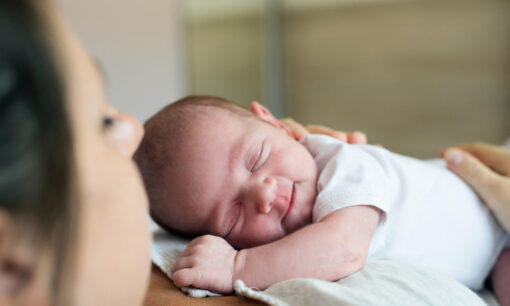CCRM FERTILITY OF CHICAGO
Endometriosis specialists in Chicago, IL
Serving the Chicagoland area
Welcome to CCRM Fertility of Chicago, where we are committed to helping individuals and couples overcome the challenges of endometriosis and infertility. With specialized experience in treating endometriosis, we understand the complexities this condition can bring to both daily life and the journey to parenthood.
Endometriosis affects up to one-third of women facing infertility, and its symptoms, such as painful periods and discomfort during intercourse, can make conception difficult. By leveraging advanced fertility treatments, including in vitro fertilization (IVF), we offer tailored solutions that can significantly improve the chances of a healthy pregnancy. Our approach blends cutting-edge medical care with compassionate support, helping you take confident steps toward achieving your dream of parenthood.


What is endometriosis?
Endometriosis is a common gynecologic disorder associated with pelvic pain and infertility. It affects as many as 1 in 10 women of reproductive age and up to 30-50 percent of women with infertility.
Endometriosis occurs when the endometrium, the tissue that normally lines the uterine cavity, develops or implants outside of the uterus.
Endometriosis is thought to form most frequently from retrograde menstruation, or the backward flow of menstrual blood and tissue through the fallopian tubes into the pelvis. Normally this tissue will be cleared by the body’s lymphatic system and immune cells. However, endometriotic cells escape these normal clearing mechanisms and instead, may attach to and invade other structures.
Endometriosis is commonly found on the internal surface of the abdominal cavity (peritoneum) and pelvic organs, such as the ovaries, uterus, fallopian tubes, bladder, and intestines. Some implants are superficial, whereas others can be deeply infiltrating.
Endometriosis responds to the hormonal signals throughout a woman’s menstrual cycle and may grow and shed similarly to the normal uterine lining, causing internal bleeding, pain, inflammation, and sometimes scar tissue formation wherever lesions exist.
Endometriosis and Infertility: What our Chicago patients need to know
Endometriosis is often linked to infertility, but the exact reasons remain unclear. Experts believe it could stem from inflammation-related damage to the fallopian tubes or poor embryo implantation due to inflammatory responses in the uterus.
While some women with endometriosis can conceive naturally, many struggle and require fertility treatments. Research suggests that women with endometriosis may experience lower pregnancy rates per treatment cycle compared to those without the condition, making early intervention crucial.
How endometriosis is treated
Several treatment options are available for managing endometriosis-related pain and improving fertility.
- Hormone therapy, such as oral contraceptives or progesterone, as it can influence hormone levels that impact the disease
- Progestin-only oral agents (e.g. norethindrone acetate), levonorgestrel-secreting IUDs, and the GnRH receptor analogues (e.g. leuprolide) are the preferred hormonal suppressants for women with endometriosis because they generally counteract or inhibit estrogen-stimulated growth and activity in both normal endometrial tissue and in endometriosis. Women, therefore, will have fewer bleeding days and fewer days of pelvic pain associated with their disease when treated with these hormonal therapies.
- Pain medication like nonsteroidal anti-inflammatory drugs (NSAIDs)
- In vitro fertilization (IVF) to assist in pregnancy
- Surgical procedures to remove lesions or, in cases of severe disease, ovaries and fallopian tubes
Endometriosis surgery
Surgery remains the gold standard in the diagnosis of endometriosis and can also be used to treat pain symptoms and improve natural fertility.
Women with suspected or laparoscopically-confirmed endometriosis who are not seeking pregnancy should always use menstrual suppression after surgery to prevent the progression or recurrence of endometriosis and to reduce pain symptoms.
Why IVF might be the best option for women with endometriosis
IVF helps bypass some of the challenges associated with endometriosis, such as blocked fallopian tubes or painful intercourse due to adhesions or cysts. In IVF, eggs are fertilized in a lab setting, creating an optimal environment for embryo development. These embryos are then transferred to the uterus, where they have a better chance of implanting and leading to a healthy pregnancy.
Although some studies show that women with endometriosis may produce fewer eggs or experience lower implantation rates than women without the condition, the overall pregnancy success per IVF cycle remains significantly higher than in natural cycles. At CCRM Fertility, we’ve pioneered protocols that improve IVF outcomes for endometriosis patients by using specific medications before preparing for frozen embryo transfers, increasing the likelihood of success.
Meet our Chicago fertility and endometriosis specialists
Finding the right fertility doctor is not always an easy task when you are looking for a fertility clinic in Chicago that can accommodate your needs. The doctors at CCRM have a great deal of experience with different fertility issues, and we feel confident that we can find a solution that will be best for you.



